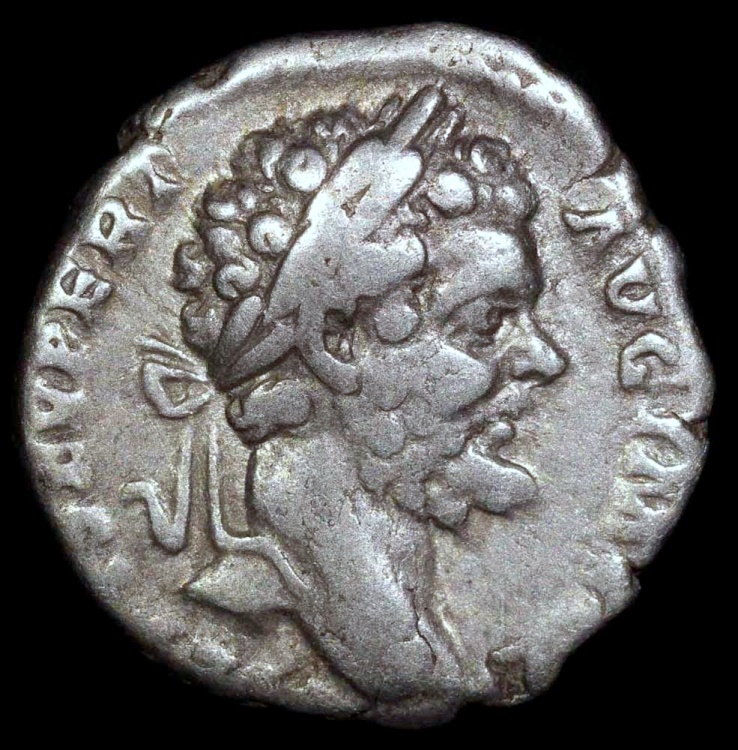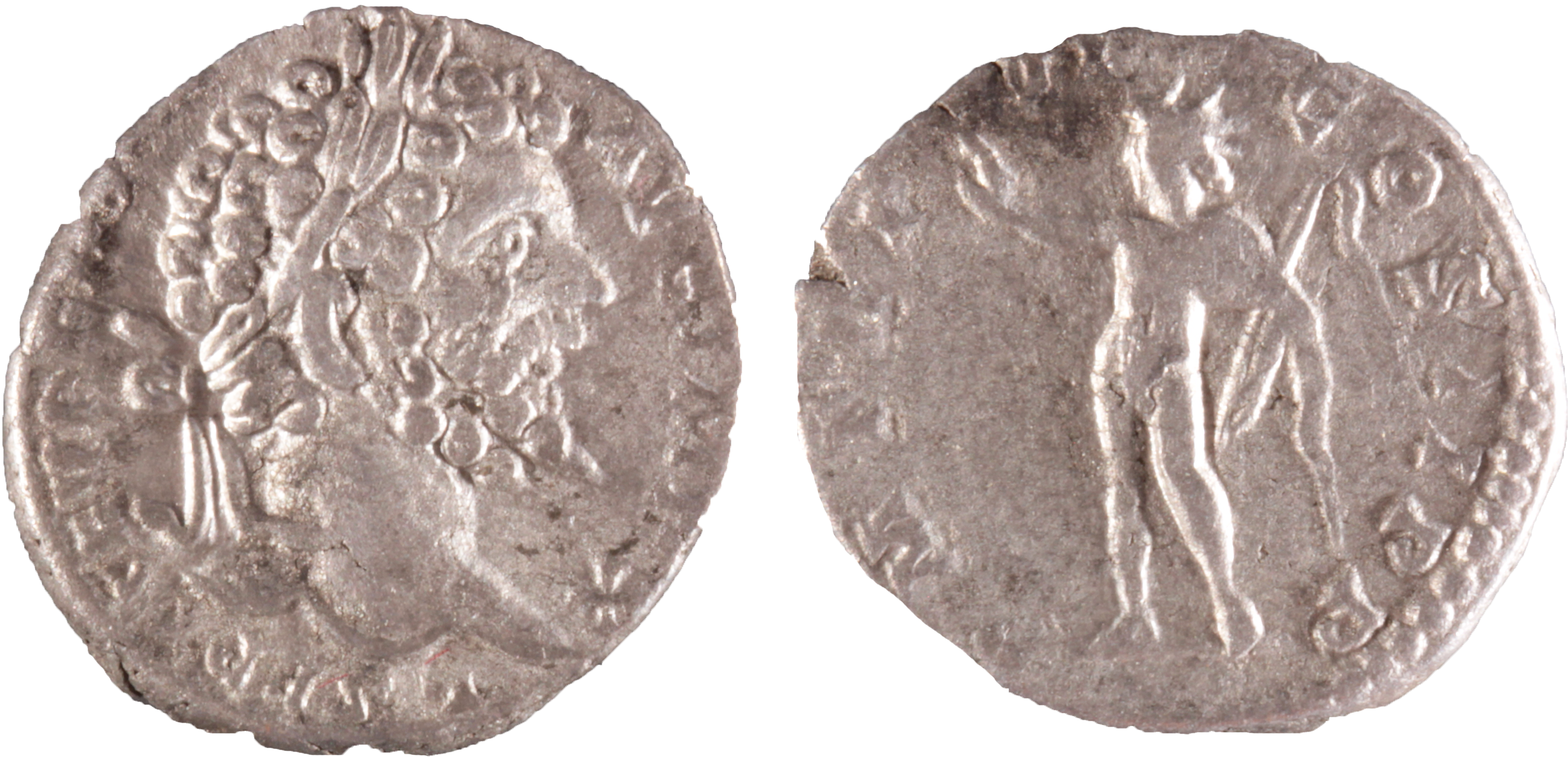
After defeating Albinus, Severus was now the sole emperor of the Roman Empire. Severus hurried west to meet Albinus in battle at Lugdunum and defeated him in a bloody and hard fought battle in February 197 CE. Realizing that Severus intended to discard him, Albinus rebelled and crossed with his legions into Gaul. This last move led him into direct conflict with his erstwhile ally Clodius Albinus who was initially given this title in return for his loyalty. Aurelius Antoninus (later the emperor Caracalla) the title of Caesar. Moreover, he conferred upon his eldest son M. To solidify his reputation and attempt to link his new dynasty with that of the Antonines, he declared himself the son of the now deified former emperor Marcus Aurelius and brother of the deified Commodus. He quickly subdued the kingdoms of Osroene and Adiabene, taking the titles Parthicus Arabicus and Parthicus Adiabenicus to commemorate these victories. While in the East, Severus turned his forces against the Parthian vassals who had backed Niger in his claims. Severan forces handed out successive defeats to Niger, driving his forces out of Thrace, then defeating him at Cyzicus and Nicaea in Asia Minor in 193 CE, and ultimately defeating him at Issus in 194 CE. Having now secured Rome (and, for the moment, Albinus' loyalty in the west), Septimius now organized a campaign to march to the eastern provinces to eliminate his rival Niger. To strengthen his rule in Italy, he also raised three new legions (I-III Parthica), based the second of these not far from Rome at Alba, and increased the city of Rome's number of vigils, urban cohorts, and other units, greatly enlarging Rome's overall garrison. Septimius quickly dissolved the existing Praetorian Guard and replaced it with a much larger bodyguard recruited from the Danubian legions under his command. With his accession, the year 193 CE is known as 'The Year of Five Emperors.' Julianus was executed, and Septimius was welcomed into Rome on 9 June 193 CE. After securing the loyalty of the sixteen legions of the Rhine and Danube to his cause, Septimius marched into Italy and, 60 miles outside of Rome, was recognized by the Senate as emperor. To prevent a possible clash with Clodius Albinus in Britain, he secured Albinus' support mainly by promising him the title of Caesar and thus a place in the imperial succession should Septimius be successful.



He had an advantage not only in terms of propaganda (Septimius had served with Pertinax previously and successfully portrayed himself as the 'avenger of Pertinax,' even adopting the slain emperor's name) but also in terms of location as Pannonia was the closest of these provinces to Italy and Rome. Septimius, in making his claim, had an edge over these two men. Not only did this give each governor a powerful military base of three legions but also ensured that the provinces adjacent to them would more often than not join in their cause if they decided to rise up and make a bid for imperial power. All three governors emerged as possible candidates mainly because each of them held provinces that were defended by three legions apiece. The second was Pescennius Niger, governor of Syria, and the third was, of course, Septimius Severus who governed the province of Pannonia Superior on the Danube frontier. The first candidate was Clodius Albinus, governor of Britain.

Word of such unrest at Rome spread to the provinces and led to the emergence of three possible candidates to challenge Julianus' rule.Īfter securing the loyalty of the sixteen legions of the Rhine and Danube to his cause, Septimius marched into Italy and was recognized by the Senate as emperor. This affair caused considerable resentment among the population at Rome who openly denounced Julianus and the way in which he acquired the throne. Didius Julianus, perhaps as a joke at first, proceeded to outbid all others at the auction and thus was proclaimed emperor by the Praetorians solely for the reason that he promised to pay them the most money. The Praetorian Guard then cynically proceeded to auction off the imperial throne to the highest bidder with the person willing to pay the most being promised the support of the Praetorian Guard and therefore the imperial throne. Moreover, the inability of Pertinax to meet the Guard's demands for back pay led to their revolt which ended in the emperor's assassination. Pertinax's actions as emperor, however, enraged members of the Praetorian Guard who disliked his efforts to enforce stricter discipline. Commodus' immediate successor, the well-respected if elderly Pertinax, was quickly made emperor afterwards. Septimius' rise to emperor began with the murder of the dissolute ruler Commodus on the last day of 192 CE.


 0 kommentar(er)
0 kommentar(er)
